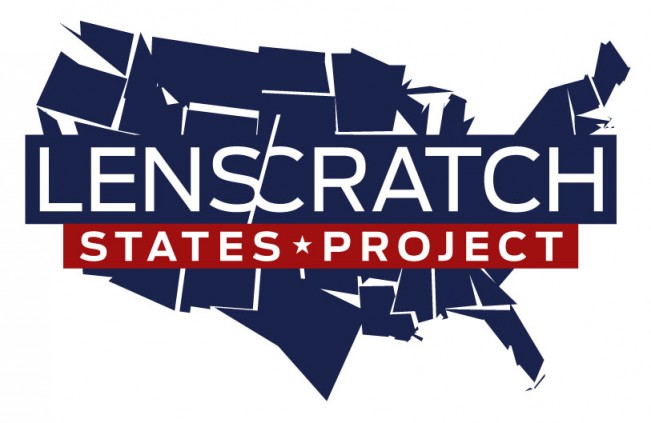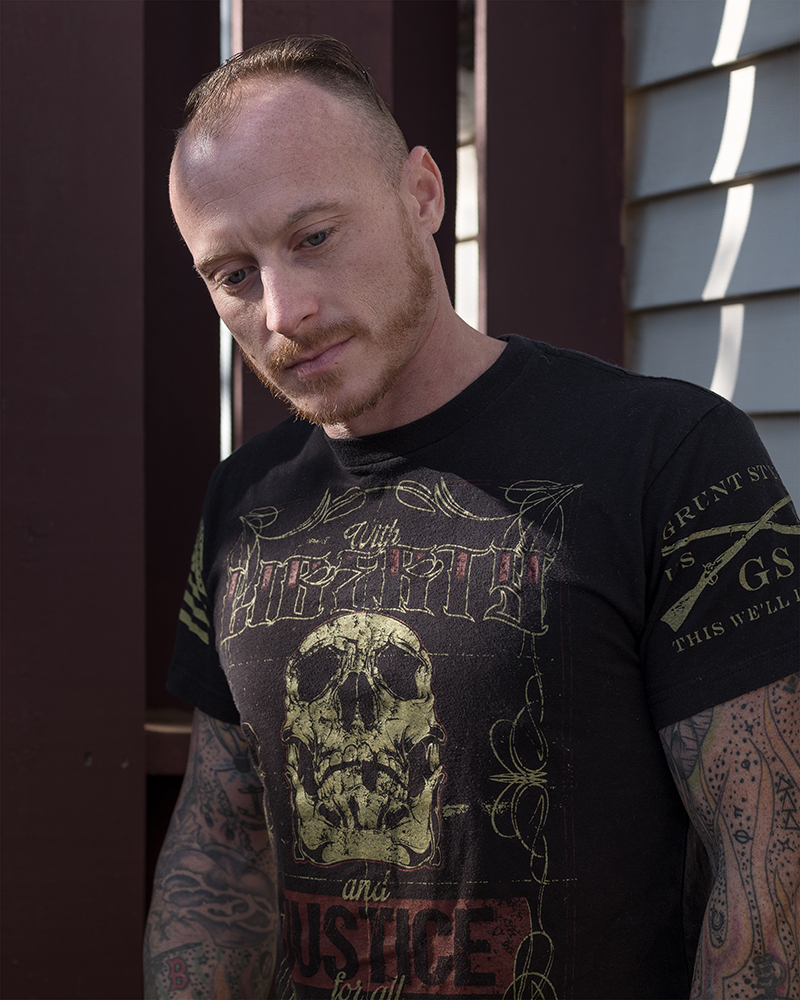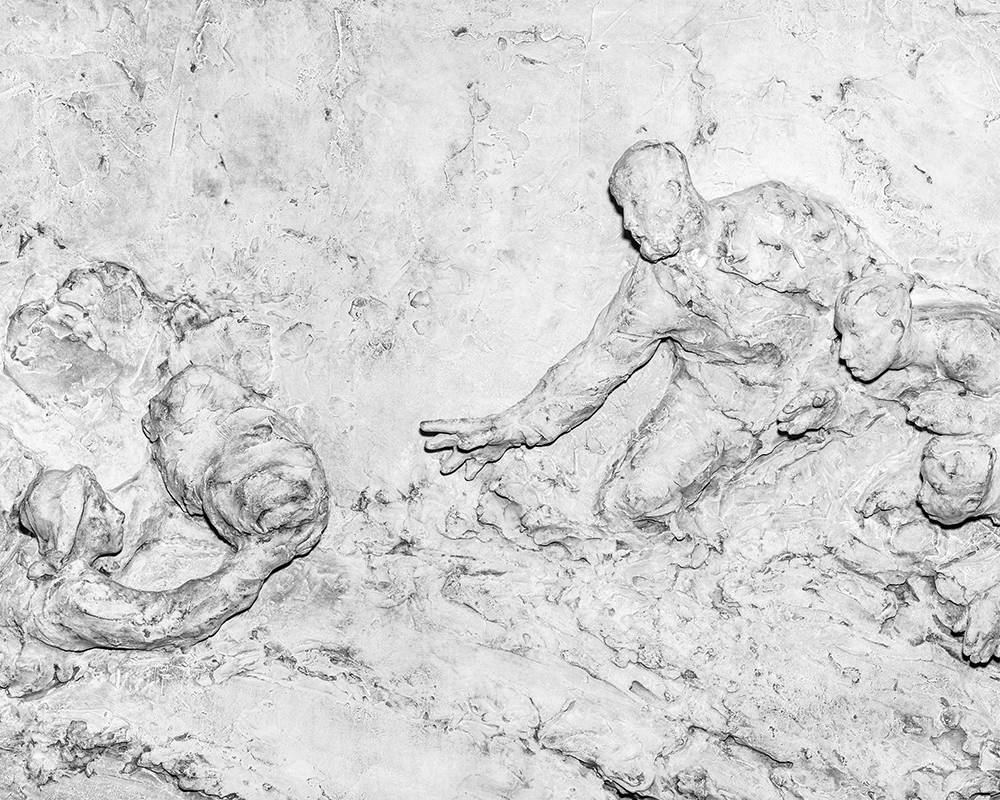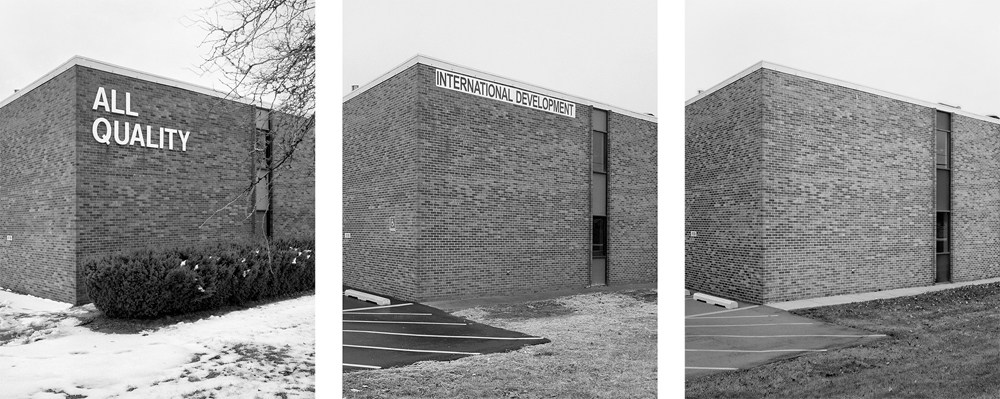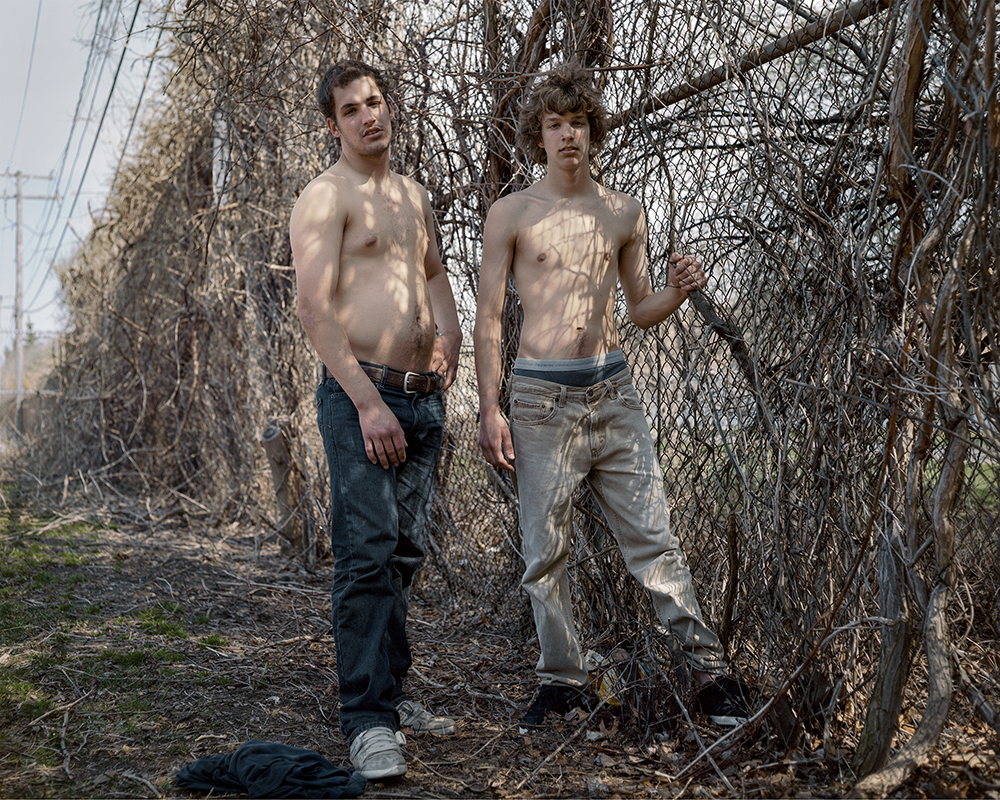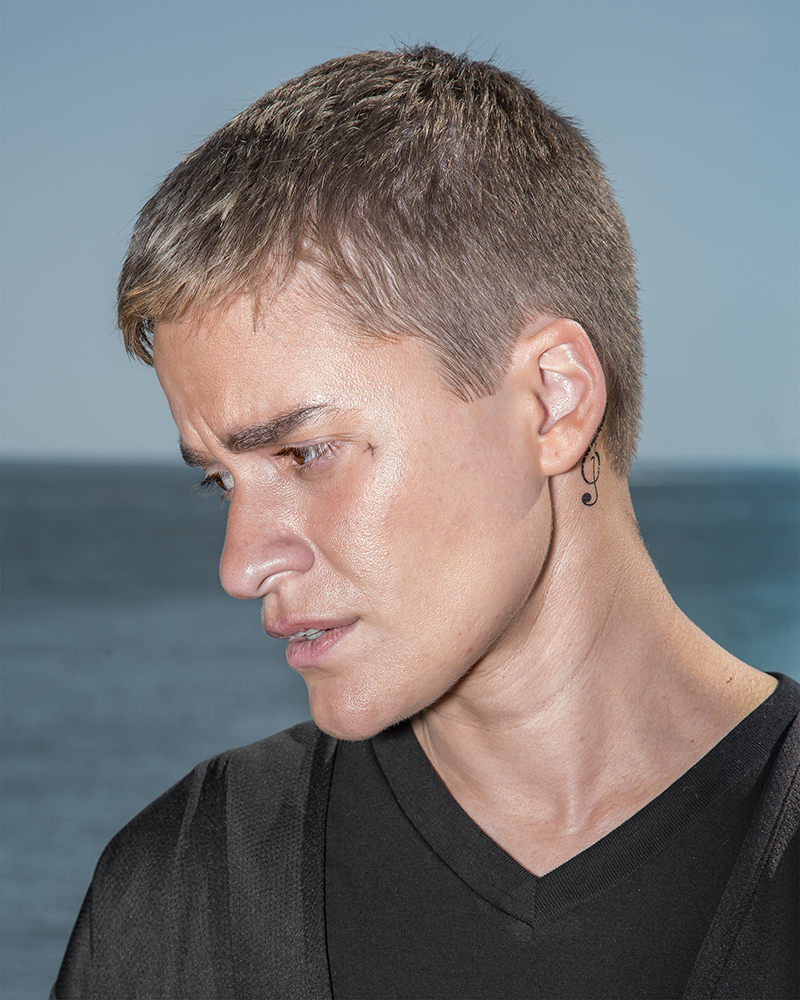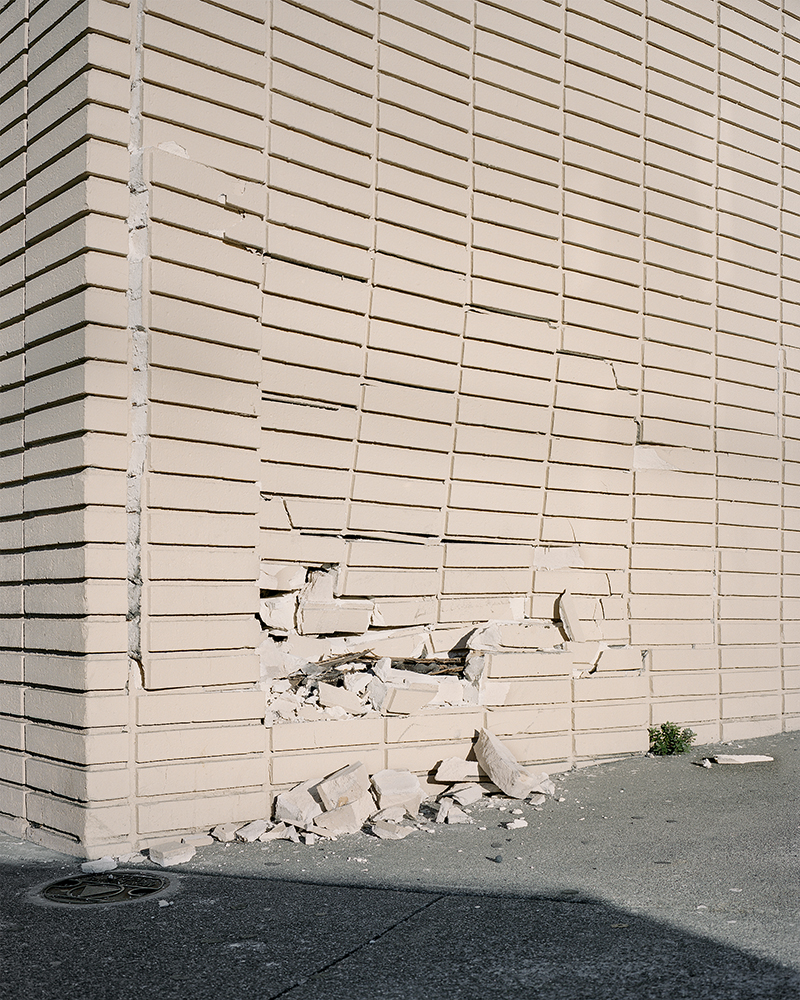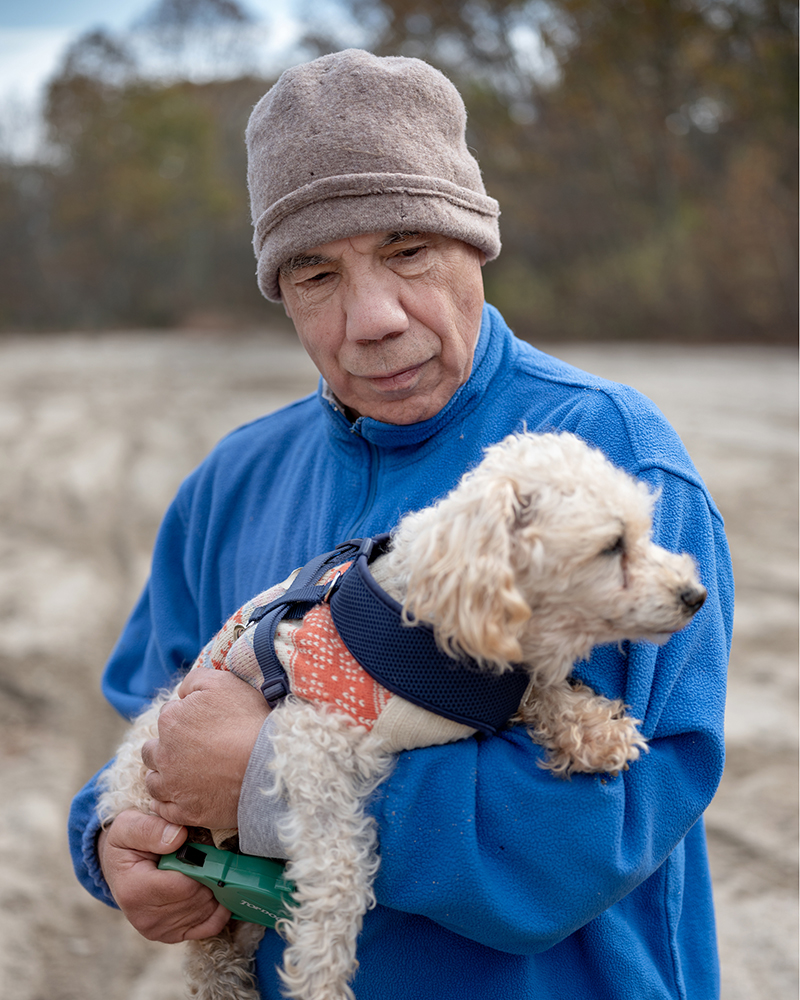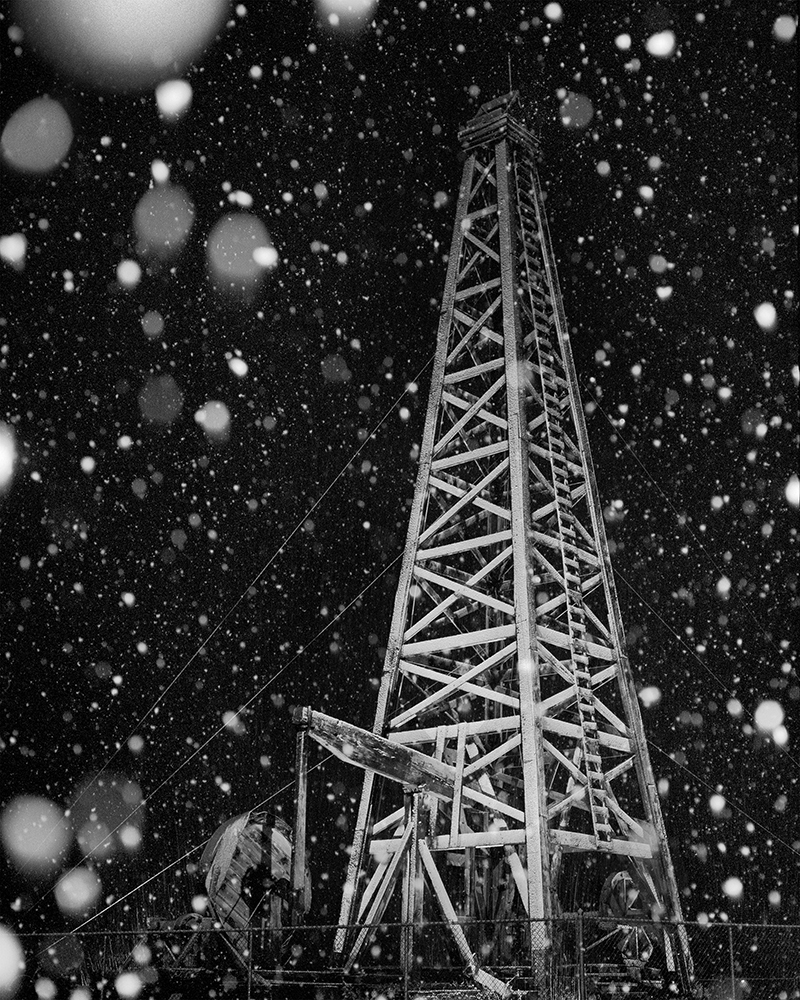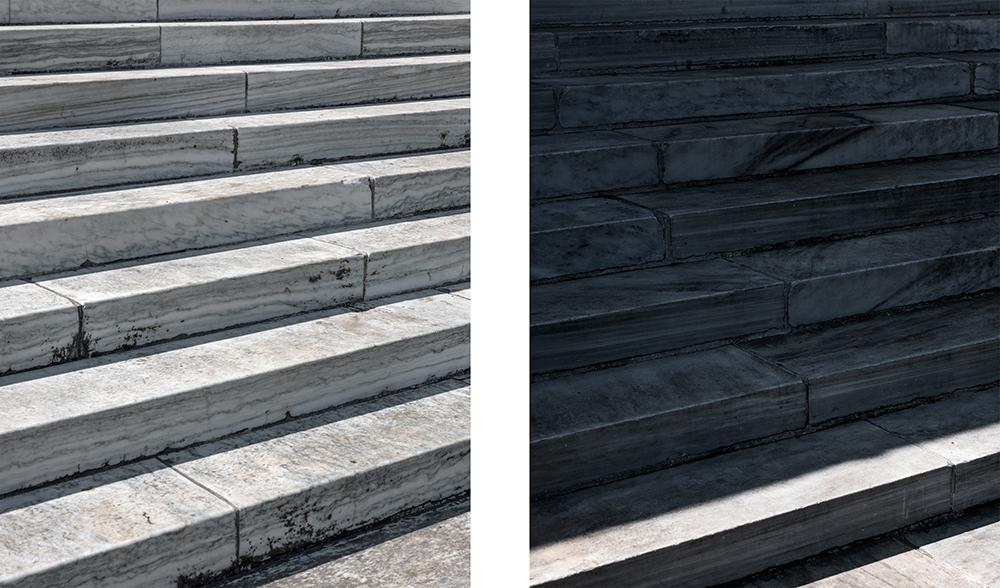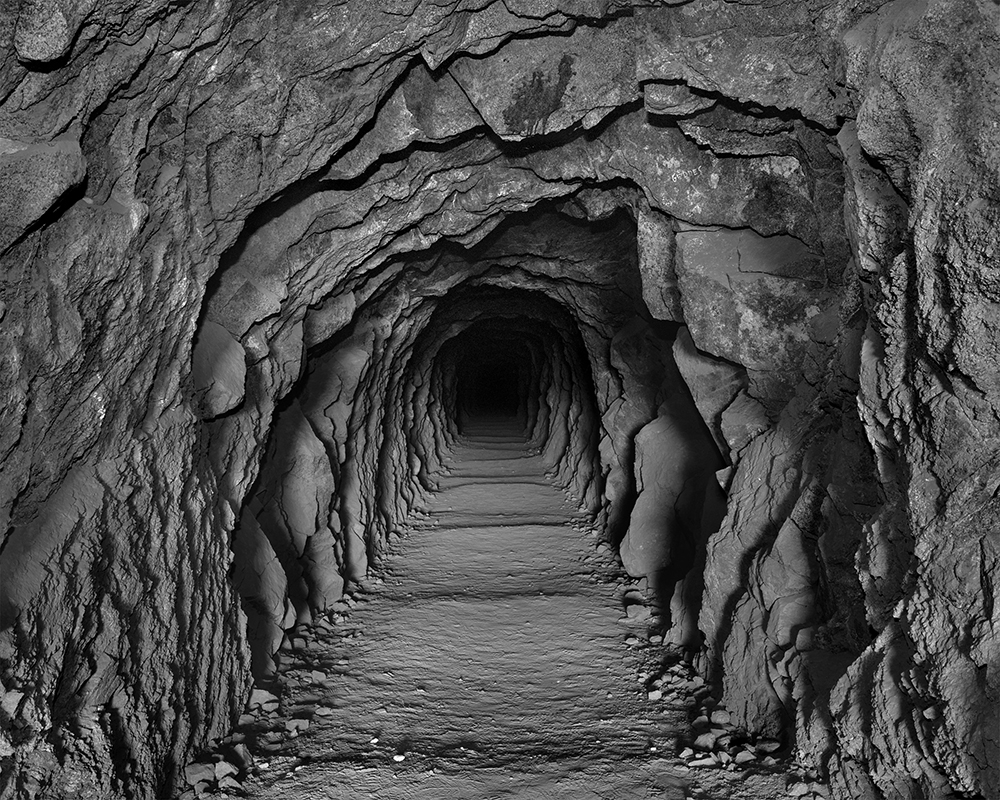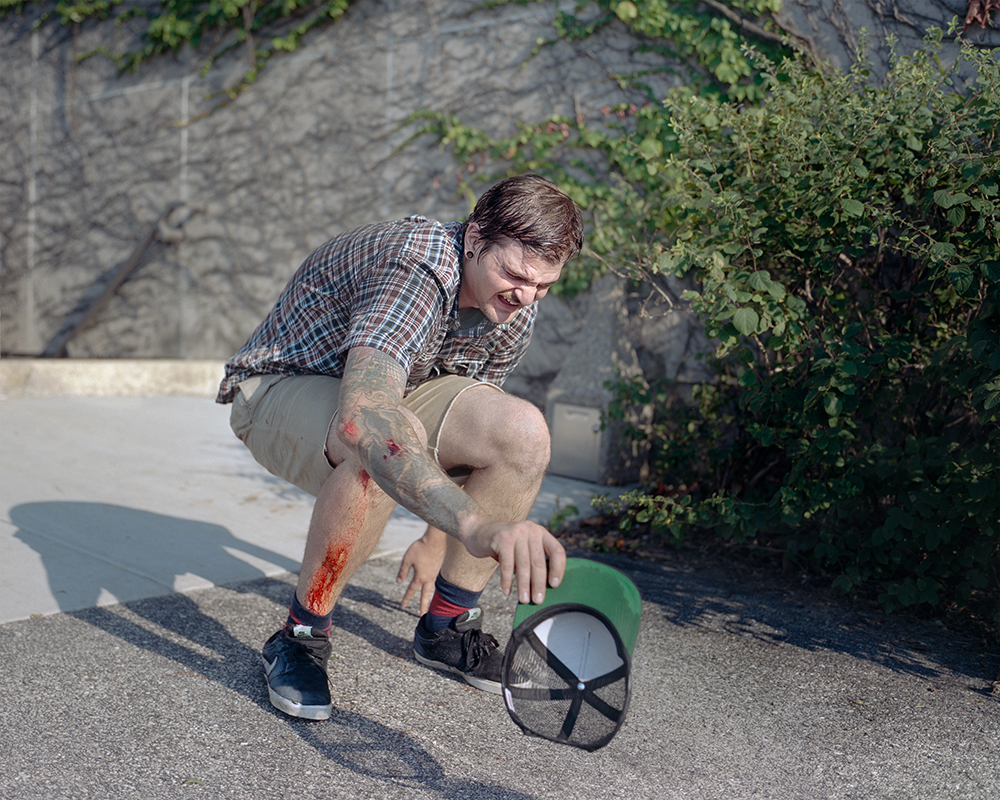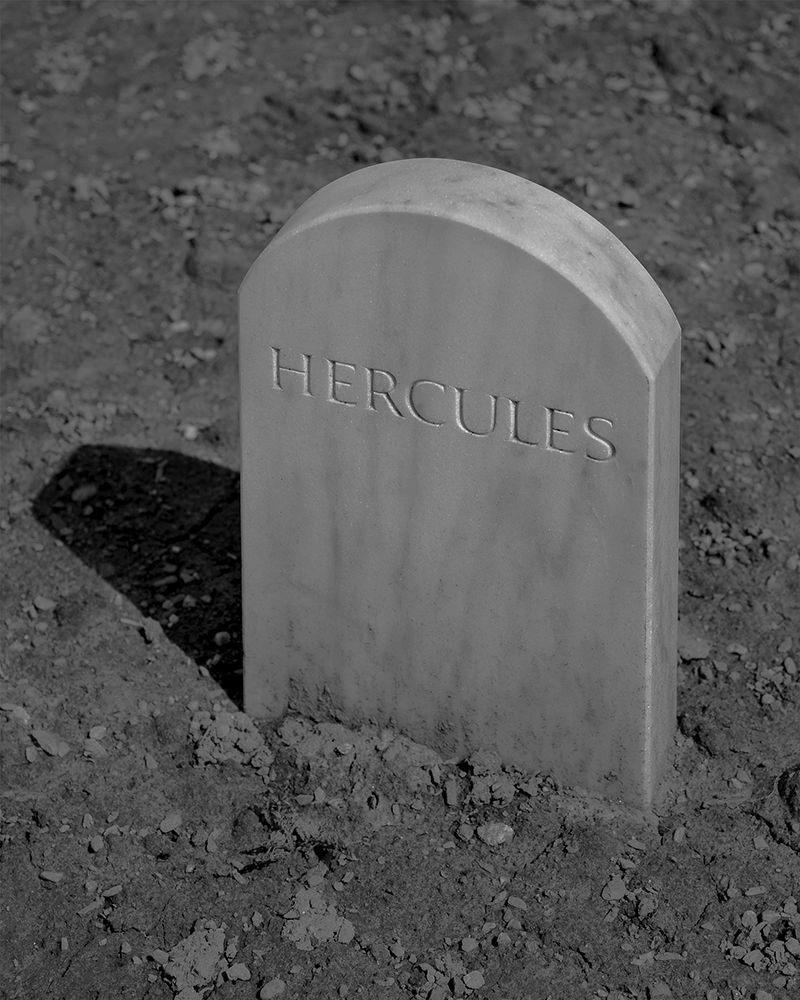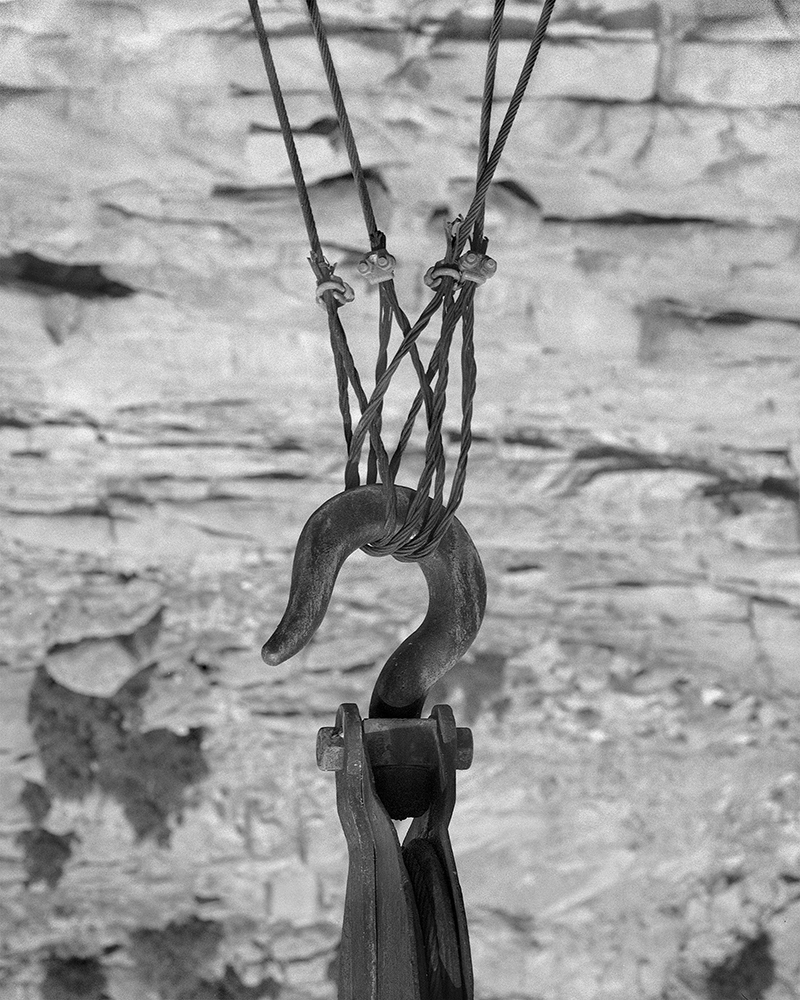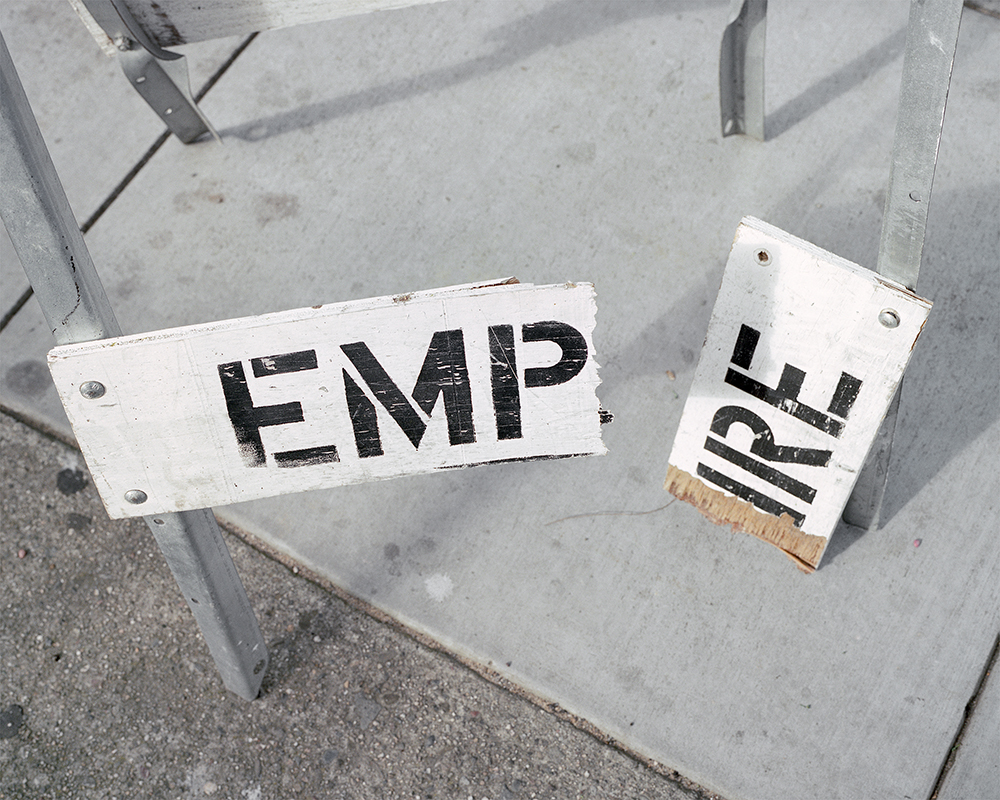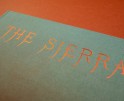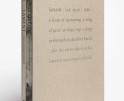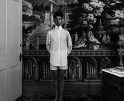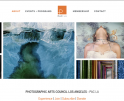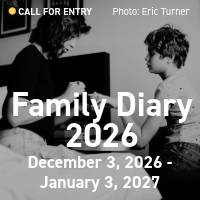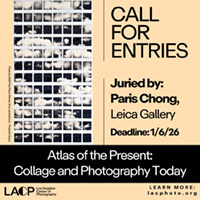Shawn Bush: The States Project: Wyoming
It gives us tremendous pleasure to present a week of Wyoming photographers, all selected by Wyoming States Project Editor Shawn Bush. I first became aware of Shawn’s work in 2017; he was receiving accolades for his book and project, Golden State and his images appeared in a host of outlets. Later that year, Shawn was selected for the 2017 Lenscratch Student Award while working on his MFA at R.I.S.D. We spent a year communicating on a regular basis and I learned so much from him. After graduation, Shawn was offered a teaching job in Wyoming, so this editorship is two-fold, allowing him to share the work of Wyoming photographers while at the same time expanding his new community.
Besides being a lens-based artist, Shawn is a master book maker. He recently established his own imprint to be launched soon, and has published four artist books: A Golden State, Between Gods and Animals, Somewhere Between, and The Process of Meaning and Worth. Today we feature his project Between Gods and Animals, “a survey of the American straight white male’s endless pursuit to sustain power and inability to live by their own set of codes.” An interview with Shawn follows.
Lens based artist Shawn Bush grew up in Detroit MI, a city whose civic history and geographic location has profoundly influenced the way he thinks about space within the American sociopolitical landscape. He is interested in over-built systems, failing icons and crumbled mythologies. Bush earned an MFA in Photography from the Rhode Island School of Design and BFA in Photography from Columbia College Chicago. He is the recipient of the 2016 T.C Colley grant for excellence in lens-based media. His debut artist book A Golden State won first prize in the handmade category at the 2016 Lucie Photobook Prize in New York City, is included in several noted collections, including the Griffin Museum of Photography in Boston, MA and was published by Skylark Editions in 2018. Bush is the owner of Dais Books and Professor of Photography at Casper College.
As a male who grew up in the wake of Detroit’s automobile fueled economy and currently lives in the “cowboy state” – Wyoming, USA -aspects of an antiquated and fleeting definition of maleness have been invariably present in my life. My project Between Gods and Animals looks at the communities who choose todisregard the growing seismic shift in American gender equality. Across years of observation and membership,the doctrine is uniform. How the performance manifests or displays itself does not matter, assumed supremacy is the objective and expectation.
Inspired by personal experience, the confluence of villain’s and hero’s in 1960’s Revisionist Western cinema and present day revelations, Between Gods & Animals is a survey of the American straight white male’s endless pursuit to sustain power and inability to live by their own set of codes. In a culture where patriarchal structures are beginning to erode, the struggle to maintain influence, control and liberties of yesteryear remain constant for their imagined empire. The dismantling of historical icons and everyday definitions of virility mark a timely subversion to the recognized and outdated socio-political hierarchies that govern Western culture.
Comparing historical standards of ordinary masculine conduct to its contemporary counterpart, the work reflects a nation in flux.One whose ideology and positionality is being reinterpreted, questioned and displaced after centuries of ruthlessly establishing itself as an unequivocal superior.
Thanks so much for taking on the Editorship of the Wyoming States Project. Tell us about your growing up and how you came to photography?
I grew up in metro Detroit, Livonia to be exact. My interested in photography came through skateboarding and video. When I was young, I would spend a great deal of time filming my colleagues on their skateboards and then edit the pieces together as a rudimentary means of personal expression. That evolved into an interest for the decisive moment and an exploration into photography. I don’t know if I would have invested myself with the medium of photography without that background. I can pinpoint that time as a major catalyst to my interest in bookmaking and the visual language of placing images in a sequence.
Can you describe Wyoming in terms of landscape and people–does it hold up to the Western mythology?
I want to preface my answer with the fact that I am still new to living in Wyoming after being here for only one year, though I do feel that I have a basic understanding of the state’s core values and interests. From my limited experienced, the state has a very particular concern in the land and its usage. Specifically through energy and farming sectors, as they generate the most money for the state and its inhabitants. The Bureau of Land Management (BLM) administers more than 18.4 million acres of public land and 41.6 million acres of federal mining land, dominating the minimal amount of remaining land that can be owned or used for other purposes. A large portion of that land is used by both industries, from letting cows graze to fracking. Relics of mining, its culture and effects it has on the land can be see everywhere. The city I live in, Casper, WY, is nicknamed “The Oil City” and was once a large figure in the production of crude oil within the Powder River Basin. Large scale mining has sense moved outside of the city borders, though there are areas where crude oil still congeals and pushes up through the ground.
The landscape here is diverse, though we are mostly a mix of high plains and high desert with some mountains, forests, lakes and rivers sprinkled in. It is a beautiful mix really. Since the population is so low, to the point that Wyoming barely qualifies as a state (based on its population) there is a lot of land between cities or towns. Many people only know of Jackson Hole or Yellowstone when they think of Wyoming. Those areas occupy a very particular part of the state and don’t hold the same ideals as much of the rest of the state. Most of my students have never been to either even though we are only a few hours away. One of the most interesting things that I have recently learned about where I live is that sand from all seven continents is deposited in the landscape through wind. An interesting juxtaposition of diversity in a state that is almost 92% white and lives in relative social isolation to the rest of the more populated states.
The myth of the Cowboy and the culture it represents can be see everywhere here. That is omnipresent in life in Wyoming from dress, to use of language, to the Cowboy logo that adorns almost every car and house. However true these modern-day cowboys are to their ancestors is debatable. Cowboy culture is rooted in white male dominance and inability to reconcile with ones owns emotions, often portrayed as being “tough” and is perpetuated though media, hence why cowboys are always pictured “on the run” in cinema. There are things to celebrate with these mythical figures, though it is important to think about those ideals in a present-day context. The University of Wyoming recently changed their slogan to “The World Needs More Cowboys” and received backlash, mainly from external sources and states, though also from a small group inside the institution. Rather than addressing how limiting the definition of a cowboy is in relation to building one’s identity and career if you are not straight, white, American and male, the schooled elected to keep the slogan. In true cowboy fashion, they showed external pressure points have no validity in how they present themselves.
As you are a fairly new transplant to Wyoming, how did you go about finding the artists for this week?
Finding artists that are working within photography, particularly within a fine art vein in a state that has such a low population would have been a difficult task. I started by reaching out to Bailey Russel, someone who I met at SPE during graduate school. That was pretty much the extent of photographers that I knew of living and working in Wyoming. After that, I had to reach out to other educators and photographers to see if they knew anyone that could fit the bill. Without that assistance, I am not sure if I would have been able to find everyone. Thanks to everyone who passed along others information, including you Aline!
Is there anything that defines a Wyoming photographer?
If we are talking about a very, very generalized definition, many Wyoming photographers show their relevance in nature and the immediate landscape with their photographs. Again, I am new to Wyoming so I can only speak about my limited experience of looking at what galleries show here and websites of artists who live within the states borders. No matter the medium, nature influences much of the work that is created by those who live here. Artists who visit or come to Wyoming in order to create new work tend to interpret the landscape and culture differently. I can relate to both, though perhaps more so the latter. Maybe that will change with time, though I suspect it will not.
How much did living in Wyoming inspire your new project, Between Gods & Animals? I know that much of your earlier work focuses on the West, even though you were living in Rhode Island.
Most of the work was made during graduate school in Massachusetts and Rhode Island, though there are images made in California and many in Michigan where I grew up. It would be hard for me to say that Wyoming had a huge influence on the creation of most images in the work. That being said, coming to Wyoming and being in relative social isolation allowed me to look at all of the work I had made the past few years and really consider how it could fit together, along with visual metaphors that were missing. Sometimes being so isolated allows one the space for reflection that would otherwise would be unobtainable, for whatever reason, and that is mainly what I have benefitted from being here. When I left graduate school, the work was completely unresolved and read differently. Being in Wyoming gave me a metal break from being so heavily influenced by others work and the process of making, allowing me to truly understand how I wanted to visually communicate with what I had already created.
Beyond the opportunity to reflect and redefine the work, I would say that I am heavily inspired and influenced by the folklore of Wyoming. Though I don’t prescribe to the culture and its ideologies, access to observe, reflect and react is a big reason why I took the position at Casper College and am living in Wyoming. Themes that are an interest to my personal practice such as (crumbling) mythologies, gender politics and sociopolitical power dynamics are deeply rooted in the culture and landscape here. Staying in Wyoming for a few years gives me access to create work that I otherwise may have not been able to. I have a lot of ideas and can’t wait to see what comes from their executions. That being said, I am making work out here and have been. Some of which is included in the book.
Between Gods & Animals looks at contemporary masculinity at an interesting time in our gender zeitgeist. You have included some terrific metaphors for the shift in Western male domination, but you have also created portraits that reveal, for me, a sense of sadness and being lost. Was that your intent?
Showing sadness and loss was integral in the way I wanted to create portraiture for this work. When I look at the nation of white men that I undoubtedly belong to and the way they are dealing with the shift in gender politics and definitions, I see a lot of discomfort and anxiety. Many men feel displaced or lost because they understand that they won’t always be able to sit at the head of the table anymore. That discomfort from feeling lost can often manifest in toxic ways. We can see it visible in everyday life. One way with slow but very real impacts is to poke fun at any group outside the parameters of being a straight white man with racist, sexist and homophobic “jokes”. Some elect for more extreme action fueled by the forthcoming decline of their imagined empire. A good example of this from recent history is the Charlottesville Attack when James Fields killed peaceful protesters that essentially challenged his groups positionality.
While this behavior and fear is not uniform for all straight white men, many, if not all, have gone through life living with a pass. Being considered “normal” and put near or at the top of the social pyramid is customary. There hasn’t been much pressure for this group to consider their positionality and history until recently because of social movements like Black Lives Matter and Me Too. Having to contend with that history of privilege and violence is challenging. Critiquing oneself or one’s tribe can be difficult but is an important part of social and personal evolution.
Your book is masterfully crafted with repeated images and new ways of considering the book experience. Can you speak to that process?
Thank you. The book, for better or worse, is home base for me. It is where I find and create relationships between images and really starting to build a visual language. As I mentioned earlier, the work was much different a year ago, even though much of the image production fell before then. The time to reflect on what notes were being hit and at what level gave me some perspective to where I should go. That is where I started when I began to reinterpret this work.
I like to think about the book how music is constructed. While I am not a musician and have no training in how to structure music, I have had a life of conditioning. One of the things that most music shares is the way it is sequenced, its use of repetition and compartmentalizing or breaking the song into sections that somehow reference on another. Generally, there is an introduction, verse, chorus, bridge and outro. Throughout all sections, similar notes are played and repeated, though not in their exact likeness. This formula is one I tried to play off by the use of repeating images and elements within different images. This was my basis for thinking about sequencing the work to make it harmonious.
Cinema also plays a large role in the use of repetition. Again, I was inspired by how films are sequenced and constructed, which is not that much different than some forms of music. I also began to look at my contact sheets and think about repetition in relation to how time passes and reveals in a physical film strip. At one point I pulled out old 16mm Western films and really investigated the nuances between each frame. In photography, many times a single image is used from a shoot. I wanted to include many iterations, some extremely similar in their use of repetition, some not so much, as a means of alluding to a passage of time from the present, both to the past and the future.
I was also influenced by Western cinema, specifically 1960’s revisionist cinema and the conflation of good and bad or heroes and villains in those films. The use of repetition and light/dark images that is employed throughout the book was a direct influence of the way those films are structured. The best visualization of this is within the smaller pages or mini books, which I think of as a slow examination of time. I also see the dichotomy between dark and light or good and bad in direct relation recent revelations within the American gender landscape in which pillars of masculinity are being exposed for past social injustices which were/are thought of, by the perpetrators, as acceptable masculine behavior. It seems like every day another man is being accused of erroneous behavior, telling of how prevalent the (white) boys club mentality is/was within Eurocentric cultures.
And finally, describe your perfect day…
That is a difficult one, as it could change depending on what is on my plate at the time. Though if I were to define a generalized perfect day, I would walk up early(ish), around 7am, shower, walk my dog, take care of emails and other necessary tasks and then make my own work until around 5pm in my studio or out in the world. After some getting energy and thoughts out, returning home to my wife and pup for a drink and good meal would be appreciated. I always have time for my wife, dog and some food. Once dinner has been consumed, a little reflection on the computer editing new images, writing and/or reinterpreting work in progress would be great. Finally, an hour or so of televised entertainment to lull me into a state of blissful unconsciousness before being woken by a new idea or the sun.
Posts on Lenscratch may not be reproduced without the permission of the Lenscratch staff and the photographer.
Recommended
-
Aaron Rothman: The SierraDecember 18th, 2025
-
Photographers on Photographers: Congyu Liu in Conversation with Vân-Nhi NguyễnDecember 8th, 2025
-
Linda Foard Roberts: LamentNovember 25th, 2025
-
Arnold Newman Prize: C. Rose Smith: Scenes of Self: Redressing PatriarchyNovember 24th, 2025
-
Spotlight on the Photographic Arts Council Los AngelesNovember 23rd, 2025


